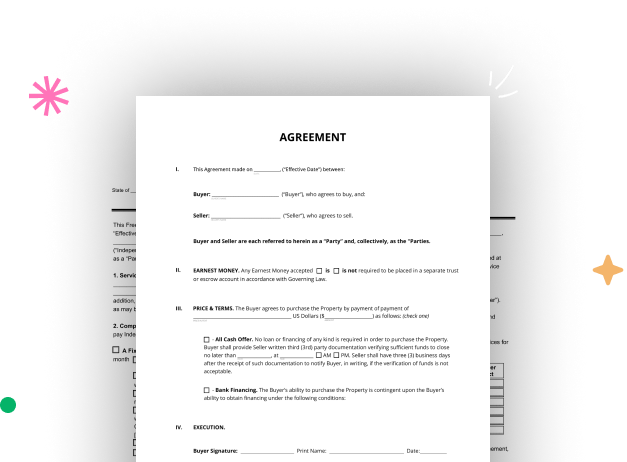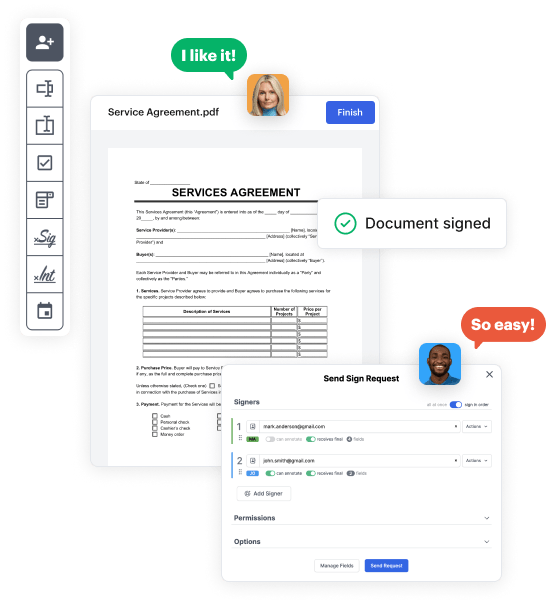

Start by logging into your DocHub account. Explore the pro DocHub functionality free for 30 days.
Once signed in, go to the DocHub dashboard. This is where you'll build your forms and handle your document workflow.
Click on New Document and choose Create Blank Document to be taken to the form builder.
Use the DocHub toolset to insert and configure form fields like text areas, signature boxes, images, and others to your form.
Include necessary text, such as questions or instructions, using the text field to guide the users in your document.
Adjust the properties of each field, such as making them mandatory or arranging them according to the data you plan to collect. Designate recipients if applicable.
After you’ve managed to design the Oregon Housing Law, make a final review of your form. Then, save the form within DocHub, export it to your chosen location, or share it via a link or email.